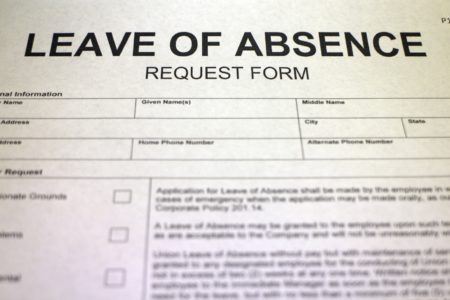
The Family and Medical Leave Act imposes duties on employers to actively engage with employees who need FMLA benefits. In fact, employers must provide an employee with notice of their FMLA rights whenever the employer “acquires knowledge that an employee’s leave may be for an FMLA-qualifying reason.” 29 C.F.R. § 825.300(b)(1). Last week, the Eleventh Circuit Court of Appeals clarified employers’ obligations, finding that the duty to provide notice of FMLA rights only arises if an employee asks for leave of some kind. Graves v. Brandstar, Inc., No. 21-13469, 2023 WL 3316741 (11th Cir. May 9, 2021).
Jessica Graves lived in Florida and her father lived in Pennsylvania. After Ms. Graves’s father underwent emergency brain surgery, she asked her employer for “ongoing flexibility” to prepare her home as she moved him to Florida. But, she never asked for time-off to prepare her home. Ms. Graves’s employer never provided notice of her rights under the FMLA and later terminated her employment under circumstances that were potentially linked to her care for her father.
Ms. Graves sued and claimed her employer violated the FMLA by failing to provide her with notice of her right to FMLA leave. But, the Eleventh Circuit found that an employer has no obligation to provide notice of FMLA rights unless the employee asks for leave of some sort. Graves, 2023 WL 3316741 at *4. “The Family and Medical Leave Act requires, at the very least, that an employee actually seek leave—of some sort—to trigger an employer’s obligation to give eligibility and rights-and-responsibilities notice.” Id. (emphasis in original). Put another way, “the employee must ask for time off—i.e., leave—in order to prompt the employer’s notice obligations.” Id. In this case, Ms. Graves never asked for time off from work. Therefore, the Court found no violation of the FMLA.
There is one crucial wrinkle to the Graves decision. The Court suggested that an employer cannot rely upon an employee’s failure to request leave if it acquires knowledge of the employee’s need for leave in some other manner. But, in the Graves case, the employer had no such knowledge.
My general suggestion to employers is: whenever there’s a question about whether an employee needs FMLA leave, just give them the standard FMLA notices. I would be cautious about limiting distribution of FMLA materials based upon an employee’s failure to expressly request “leave.” But, the Graves case provides an additional potential defense to employers who fail to give FMLA notices to their employees.